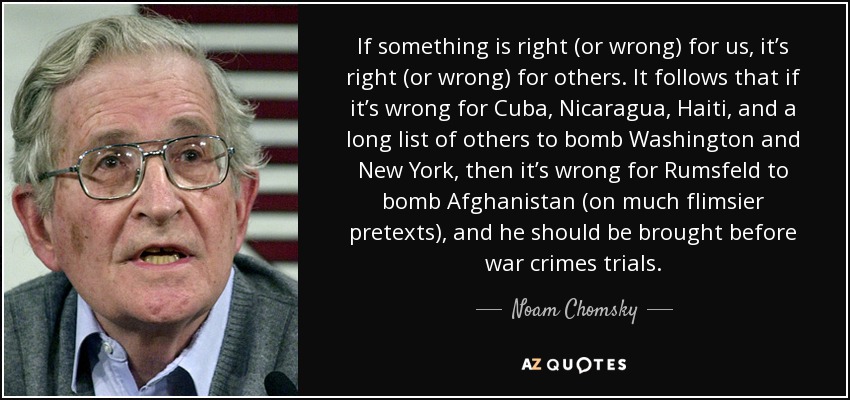Haiti Quotes - Page 3
-
-
 If something is right (or wrong) for us, it’s right (or wrong) for others. It follows that if it’s wrong for Cuba, Nicaragua, Haiti, and a long list of others to bomb Washington and New York, then it’s wrong for Rumsfeld to bomb Afghanistan (on much flimsier pretexts), and he should be brought before war crimes trials.
If something is right (or wrong) for us, it’s right (or wrong) for others. It follows that if it’s wrong for Cuba, Nicaragua, Haiti, and a long list of others to bomb Washington and New York, then it’s wrong for Rumsfeld to bomb Afghanistan (on much flimsier pretexts), and he should be brought before war crimes trials.
-









